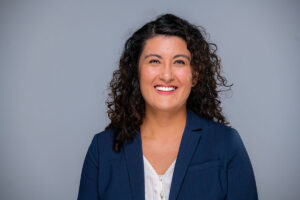Melissa J. Cuba

Assistant Professor of Special Education
melissa.cuba@maine.edu
207.581.2459
306 Shibles Hall
University of Maine
Orono, Maine 04469-5766
Bio: Melissa Cuba is an Assistant Professor of Special Education and a multilingual scholar at the University of Maine’s College of Education and Human Development. Her research centers on developing and enhancing evidence-based practices and policies to mitigate the disproportionality of multilingual learners in special education, with a focus on improving educational outcomes. She has published extensively on factors influencing opportunities and outcomes for multilingual learners and has contributed articles on instructional strategies that effectively support these students. Drawing on 15 years of PreK-12 practitioner experience, Melissa brings deep expertise in working with multilingual learners with and without disabilities, as well as collaborating with the school professionals who support them.
Education
Ph.D. in Education, Concentration in Curriculum, Culture and Change, 2020, Virginia Commonwealth University
M.Ed. in Curriculum and Instruction in ESOL, Special Education and Spanish, 2012, George Mason University
B.A. in World Politics, Philosophy and Spanish Literature, 2002, Catholic University of America
Courses taught at UMaine
- SED 502: Strategies for Culturally and Linguistically Diverse Students with Disabilities
- SED 529: Language Development and Literacy for Diverse Young Learners
- SED 545: Intervention for Reading Difficulties
- SED 605: Seminar in Special Education, Critical Issues
- SED 630: Special Education Leadership
- EHD 301/511: Classroom-based Prevention and Intervention: Supporting Positive Behavior and Academic Achievement
Sample publications
- Cuba, M. J., & Tefera, A. A. (2024). Contextualizing multilingual learner disproportionality in special education: A mixed-methods approach. Teachers College Record.
- Cuba, M. J., Nomi, B. C., & McMillan, J. H. (2023). Supporting undocumented students: A comparative study of training methods for pre-service school professionals. Journal of Education for Teaching, 49(2), 222-235.
- Matute-Chavarria, M., Cuba, M. J., Lavin, C. E., Katz, S., Brown, M. R., & Aborishade, A. P. (2022). Using Technology to Coach Culturally and Linguistically Diverse Families in the Behavior Intervention Plan Process: Embedding Funds of Knowledge. Journal of Special Education Technology, 0(0).
- Palencia, V., Massaro, V., Cuba, M. J., Rolander, K., Waters, C., & Harris, A. (2021). Fostering greater equity for emergent bilinguals through dual language programming. TESOL Journal, e605.
- Cuba, M. J. (2020). Frontloading academic vocabulary for students who are English learners with disabilities in an integrated classroom setting. Intervention in School and Clinic, 55(4), 230-237.
- Parkhouse, H., Massaro, V., Cuba, M. J., & Waters, C. (2020). Teachers’ efforts to support undocumented students within ambiguous policy contexts. Harvard Educational Review, 90(4), 525-549.
- Tefera, A. A., Artiles, A. J., Lester, A., & Cuba, M. J. (2019). Grappling with the paradoxes of inclusive education in the US: Intersectional considerations in policy and practice. In Hartmann, M., Hummel, M., Lichtblau, M., Löser, J., & Thoms, S. (Eds.), Facetten inklusiver bildung. (pp. 117-125). Bad Heilbrunn: Klinkhardt.
- Cuba, M. J., Massaro, V. R., Waters, C., Watson, S., Cody, A. M., & Stemhagen, K. (2018). Beyond the label: Using a multilevel model of intersectionality to explore the educational experiences of Latino English learners. Journal of Latinos and Education, 1-16.
Connect with Melissa on Research Gate
Connect with Melissa on LinkedIn
